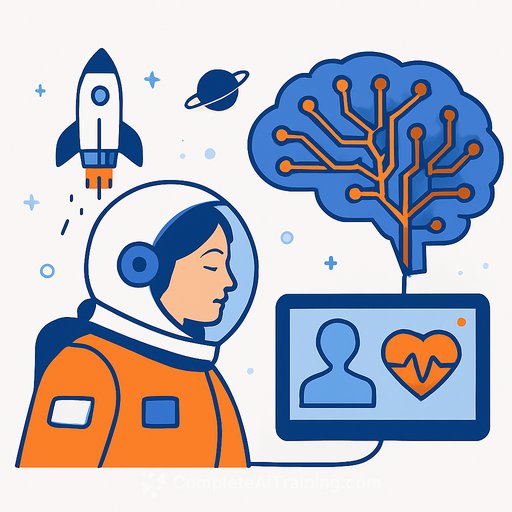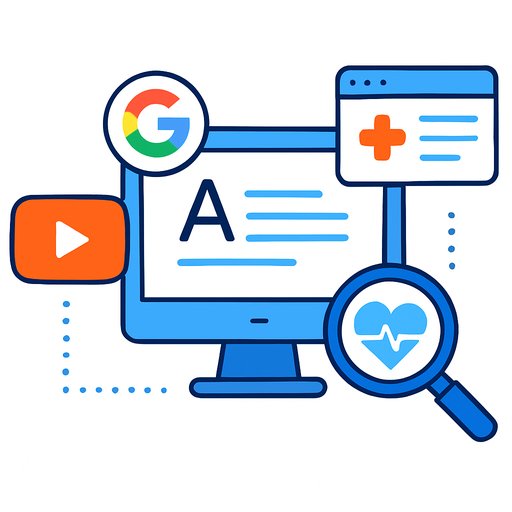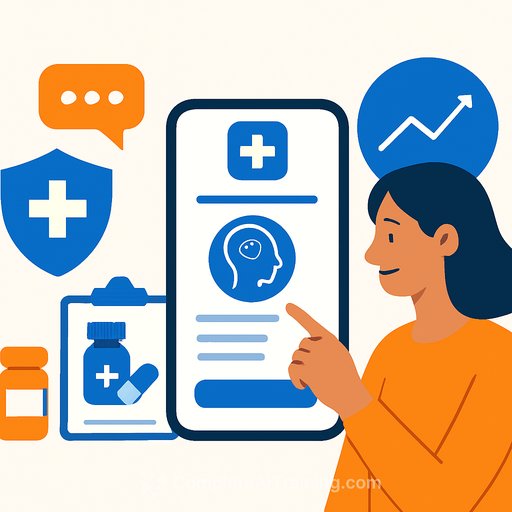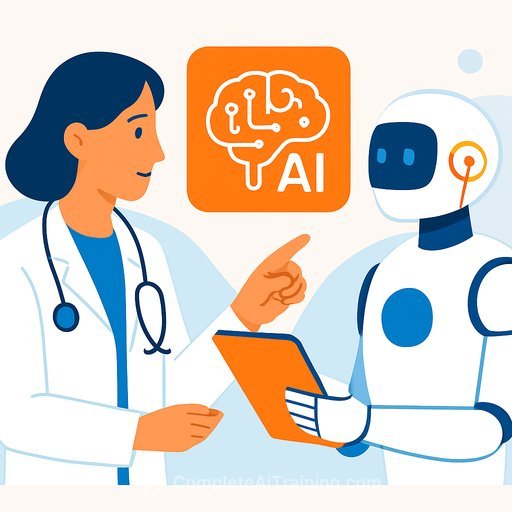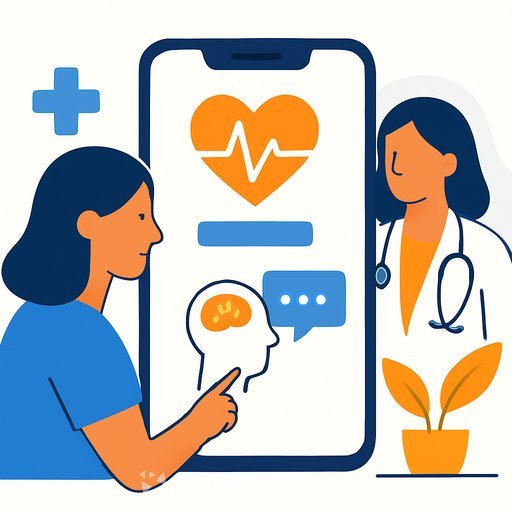AI-assisted astronaut care is getting real - and it could raise standards on Earth
"Medbeds" made headlines recently. They're fiction. The real story is more practical: AI systems that help diagnose and guide treatment when clinicians aren't available - the exact problem space agencies are solving for deep space missions.
As NASA missions push farther from Earth, crews need medical autonomy. That same capability can serve rural communities, disaster zones, and any setting where specialists and bandwidth are scarce.
The health issues astronauts face
Spaceflight stresses the body in ways you rarely see on Earth. Low gravity reduces bone density, weakens skeletal and cardiac muscle, alters balance and vision, and can affect digestion. Radiation adds risk for acute sickness, neurological effects, degenerative disease, and cancer.
There isn't always a physician aboard, and communications can be delayed or limited. That reality is forcing healthcare to become more autonomous, data-driven, and resilient - lessons worth importing to terrestrial care.
Google + NASA: a clinical co-pilot for space
NASA and Google are developing the Crew Medical Officer Digital Assistant (CMO-DA), an automated Clinical Decision Support System (CDSS) trained on spaceflight medical literature. It analyzes symptoms and context, supports a crew medical officer or flight surgeon, and can guide care when no doctor is available.
Early trials show promising diagnostic support across several complaints, including ankle injuries, flank pain, and ear pain. The teams are now working with physicians to refine the model and integrate more data sources such as connected medical devices.
"This tool represents an important milestone for AI assisted medical care and our continued exploration of the cosmos," says Jim Kelly, vice president of federal sales at Google Public Sector.
For background on the broader research agenda, see NASA's Human Research Program overview.
Monitoring human performance: eye metrics and fatigue
NASA-funded TRISH is testing HarmonEyes, an AI eye-tracking platform that estimates cognitive load and fatigue before it degrades performance. Later this year, the H-SMART system will be trialed in Antarctica to benchmark predictions in extreme conditions.
"In the Antarctic we will demonstrate that H-SMART can offer superior prediction of astronaut's cognitive and fatigue states solely based on eye metrics," says Adam Gross, CEO and co-founder of HarmonEyes.
Canada's push: automated checkups and AI triage
Canada funded four companies - Baüne, Lunar Medical, CardioComm Solutions, and ResusMind - to build Connected Care Medical Modules (C2M2s). These kits can capture up to 40 vitals and biomarkers (e.g., blood pressure, pulse, SpO2) and generate AI-supported differential diagnoses.
The goal: a compact, reliable frontline assessment system for crews - and, by extension, remote clinics and field operations.
Why this matters for healthcare on Earth
"This innovative system isn't just about supporting space exploration… It holds potential for advancing space missions and could also benefit people here on Earth by providing early access to quality medical care in remote areas," says Kelly.
- Remote and rural care: Offer triage, first-line guidance, and escalation triggers when clinicians are hours away.
- Disaster response and conflict zones: Run offline-capable, portable kits with embedded protocols and local decision support.
- Workforce support: Reduce cognitive load for overstretched teams with checklists, risk scores, and just-in-time guidance.
- Occupational and expedition medicine: Bring a virtual flight surgeon to ships, mines, oil rigs, and research stations.
Commercialization signals
Space-developed tech often migrates into everyday use. BioAstra's new spin-off, medAstra, aims to adapt health-monitoring wearables and imaging tools for hospitals and health systems.
"Medical systems that keep astronauts safe in orbit can, and should, raise the standard of care on Earth," says Savi Glowe, CEO and co-founder of medAstra. "We built adherence tools to function in the chaos of microgravity. That same engineering discipline applies anywhere protocol failure isn't an option."
What healthcare leaders can do now
- Identify high-value use cases: rural triage, ED intake, urgent care nights, hospital-at-home, EMS kits.
- Demand offline resilience: models and protocols should run locally with sync-on-connect behavior.
- Integrate devices: standardize data from vitals, wearables, and imaging into a unified assessment layer.
- Establish a clinical AI formulary: govern which models are approved, for what indications, and with what guardrails.
- Test like a mission: simulation-based validation, clear handoff points, and "pause/override" controls.
- Measure outcomes: diagnostic accuracy, time-to-decision, avoided transfers, complication rates, and clinician workload.
- Plan for regulation and safety: align with FDA guidance on clinical decision support here. Log model versions, inputs, and outputs for audit.
- Address bias and drift: monitor performance across demographics and update models with real-world data.
Bottom line
Space medicine is forcing healthcare to be autonomous, reliable, and simple under pressure. Those constraints produce tools that can strengthen care in the hardest places on Earth. The next edge in clinical performance won't be a miracle device - it will be proven workflows that pair AI with human judgment.
Want structured upskilling for your team? Explore focused options for healthcare roles at Complete AI Training.
Your membership also unlocks:

